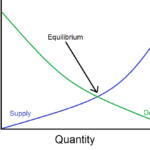Understanding Tariffs on Imported Chips
In recent news, there has been a buzz surrounding the potential imposition of tariffs on imported chips. This move is said to be initiated by the Trump administration and is expected to take effect in the near future. To fully comprehend the implications of such a decision, it is essential to delve into the world of tariffs, their impact on the economy, and the specific implications for the chip industry.
What are Tariffs?
Tariffs are essentially taxes imposed on imported goods, with the aim of protecting domestic industries from foreign competition. The imposition of tariffs can serve as a tool for governments to regulate trade, influence consumer behavior, and address trade imbalances. In the case of imported chips, the proposed tariffs are likely intended to bolster the domestic chip industry and reduce reliance on foreign suppliers.
The Impact of Tariffs on the Economy
While tariffs may offer short-term benefits to domestic industries, they can have far-reaching consequences for the economy as a whole. Increased tariffs often lead to higher prices for imported goods, which can result in inflation and reduced purchasing power for consumers. Moreover, retaliatory tariffs from affected countries can spark trade wars, further disrupting global trade and economic stability.
Implications for the Chip Industry
The chip industry is a crucial component of the global technology sector, with chips serving as the backbone of various electronic devices and systems. Imposing tariffs on imported chips could have significant implications for both chip manufacturers and consumers. Domestic chip producers may benefit from reduced competition and increased demand, but consumers could face higher prices and limited product choices.
Challenges and Opportunities
The proposed tariffs on imported chips present both challenges and opportunities for the industry. While domestic chip manufacturers may see a boost in production and sales, they could also face supply chain disruptions and increased production costs. On the other hand, consumers may have to contend with higher prices for electronic devices, potentially impacting demand and consumption patterns.
Global Trade Dynamics
The imposition of tariffs on imported chips is not an isolated incident but rather a reflection of broader shifts in global trade dynamics. With increasing protectionist measures and trade tensions between major economies, the chip industry is caught in the crossfire of geopolitical rivalries and economic uncertainties. Navigating these complex dynamics will require strategic planning and adaptability from all stakeholders in the industry.
Looking Ahead
As the debate around tariffs on imported chips continues to unfold, it is essential for industry players, policymakers, and consumers to closely monitor developments and assess the potential implications. Finding a balance between protecting domestic industries and ensuring a competitive and sustainable global trade environment is paramount in navigating the complexities of the modern economy. Ultimately, the future of the chip industry will be shaped by how stakeholders respond to these challenges and opportunities in the ever-evolving landscape of international trade.
More from my site






